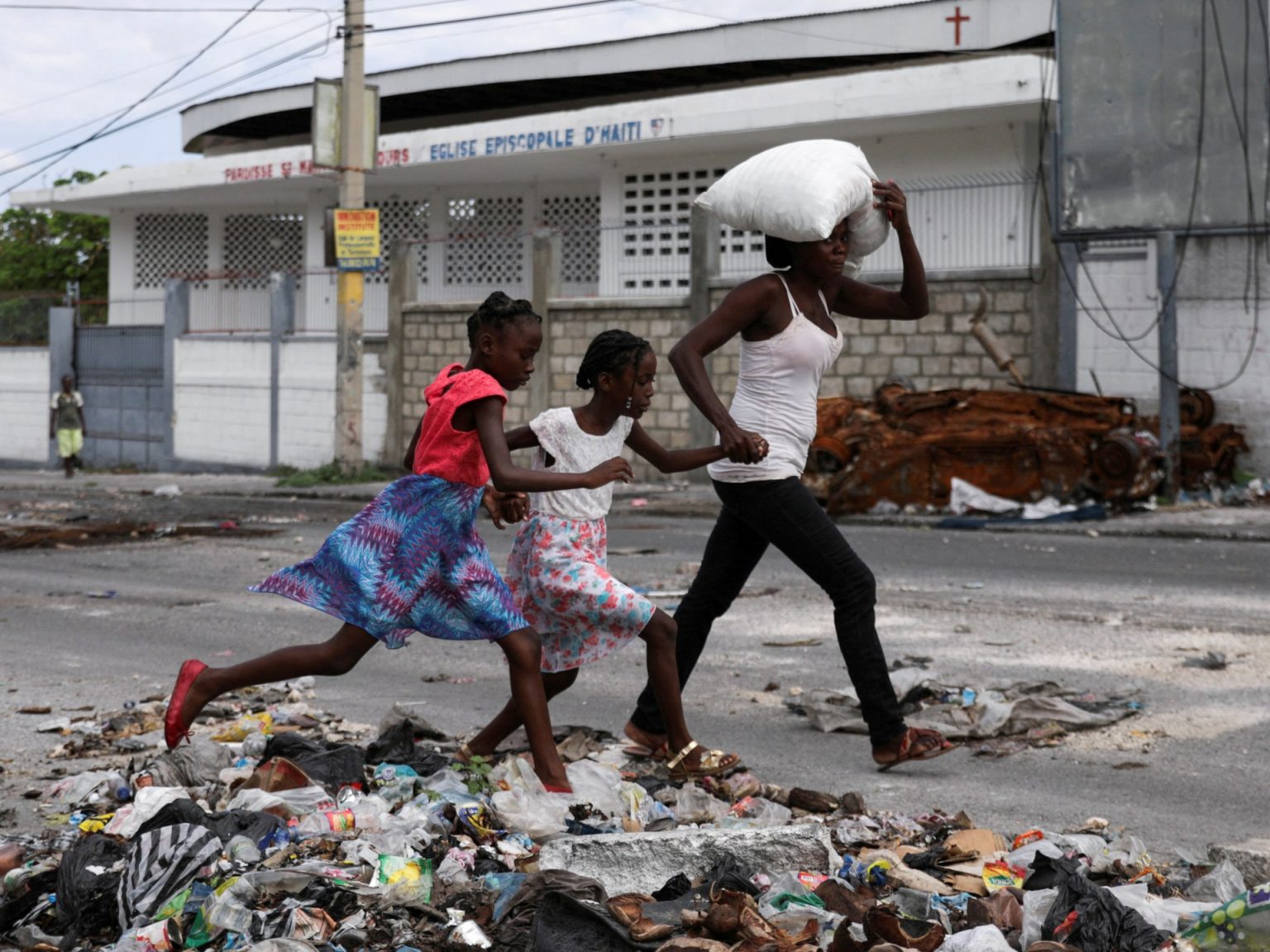Haiti’s descent into unrelenting violence has reached a catastrophic level, marked by a staggering death toll, widespread kidnappings, and the pervasive control of armed gangs, particularly in the capital city of Port-au-Prince. The United Nations, in a stark condemnation of the situation, has documented over 5,600 deaths and thousands more injuries and abductions in 2024 alone, attributing the surge in violence to the unchecked power of criminal gangs. This grim statistic, however, fails to fully capture the “absolute horrors” faced by the Haitian population, who are subjected to daily acts of brutality and terror. Beyond the gang violence, human rights abuses, including summary executions and extrajudicial killings, coupled with rampant corruption, further destabilize the nation and erode the rule of law.
The control exerted by armed gangs over significant portions of Port-au-Prince exemplifies the severity of the crisis. The vacuum of authority created by the weak state has allowed these gangs to operate with impunity, engaging in turf wars, extortion, and kidnappings. The situation is further complicated by allegations of police brutality against suspected gang members, creating a cycle of violence that fuels instability. One particularly horrific example of this violence is the massacre in the Cité Soleil area of Port-au-Prince in early December 2024, where the leader of the notorious Wharf Jeremie gang orchestrated the deaths of at least 207 people. This incident underscores the urgent need for effective intervention to disarm these groups and restore security to the beleaguered nation.
The UN Human Rights Office has documented a disturbing trend of vigilante justice, with at least 315 reported lynchings of suspected gang members and their associates. Alarmingly, some of these incidents reportedly involved the complicity of Haitian police officers, raising serious concerns about the integrity and accountability of the law enforcement agencies. Furthermore, the UN has documented 281 alleged summary executions involving specialized police units, highlighting the pervasive nature of extrajudicial killings and the urgent need for reforms within the Haitian National Police. This culture of impunity, combined with widespread corruption, creates an environment where human rights violations are rampant and justice remains elusive.
The UN’s response to the escalating crisis has included the relocation of its staff from the Haitian capital due to security concerns. While emphasizing its continued commitment to Haiti, the UN has adapted its operations by moving personnel to safer areas within the country and enabling remote work for others. This strategic shift allows the UN to maintain its presence and continue providing essential services while prioritizing the safety of its staff. The UN High Commissioner for Human Rights has strongly advocated for holding police officers accountable for alleged human rights abuses, emphasizing the crucial role of international support in achieving this goal. Restoring the rule of law has been identified as a paramount objective, requiring comprehensive reforms, strengthened institutions, and a commitment to justice and accountability.
A key international effort to address the security crisis involves a 430-strong UN-backed security mission, primarily composed of Kenyan police officers. This mission, deployed in June 2024, aims to bolster Haiti’s understaffed police force and contribute to restoring order. However, despite this intervention, violence has continued to escalate, underscoring the complexity of the challenge and the need for a more robust and comprehensive approach. The UN High Commissioner has stressed the importance of fully implementing the UN Security Council-mandated sanctions and arms embargo to stem the flow of weapons into the hands of criminal gangs. These weapons fuel the violence, leading to devastating consequences for the Haitian population, including displacement, destruction of infrastructure, and disruption of essential services.
The Haitian government, supported by the United States and other Caribbean nations, has appealed to the UN Security Council for authorization of a full-scale peacekeeping operation. This call reflects the recognition that the current security mission is insufficient to address the deeply entrenched crisis. However, permanent Security Council members Russia and China have opposed this proposal, advocating instead for strengthening the Haitian police force as the primary strategy for combating gang violence. This disagreement highlights the challenges in achieving international consensus on the most effective approach to resolving the Haitian crisis. The ongoing debate underscores the urgent need for a unified and decisive international response to prevent further deterioration of the situation and bring stability and security to the long-suffering Haitian people.

